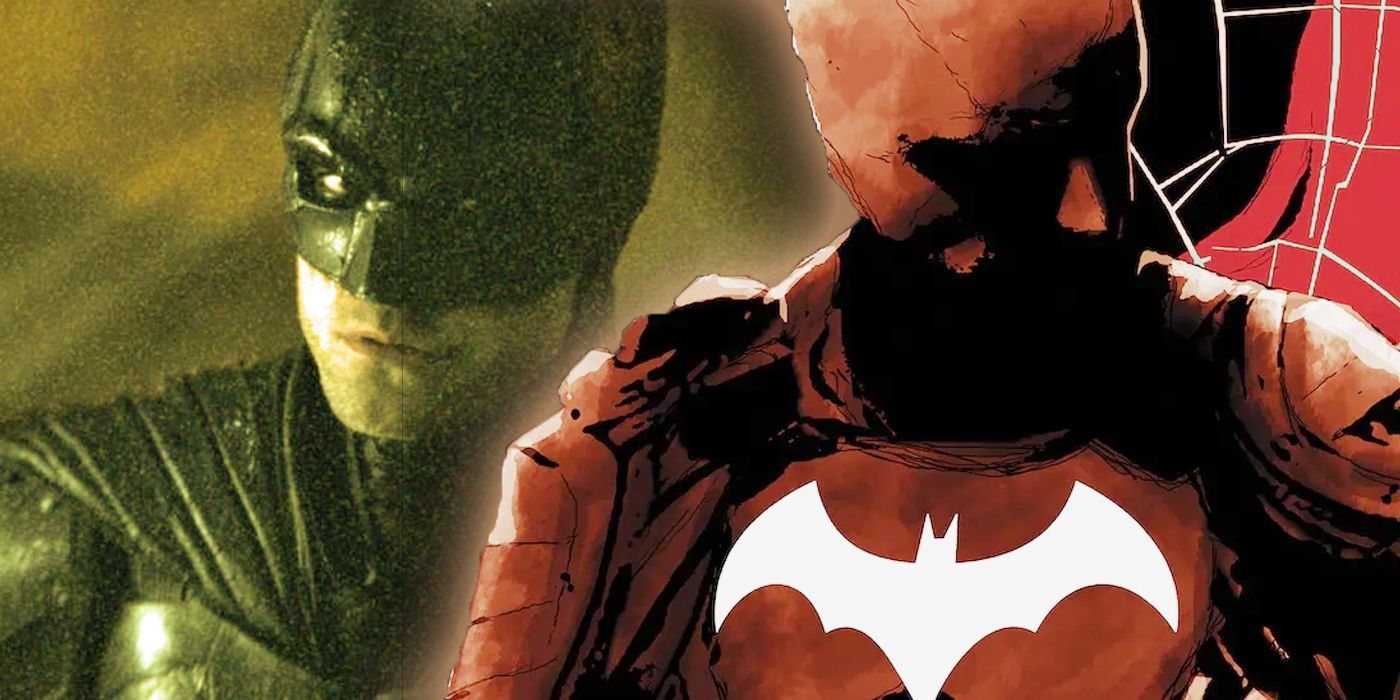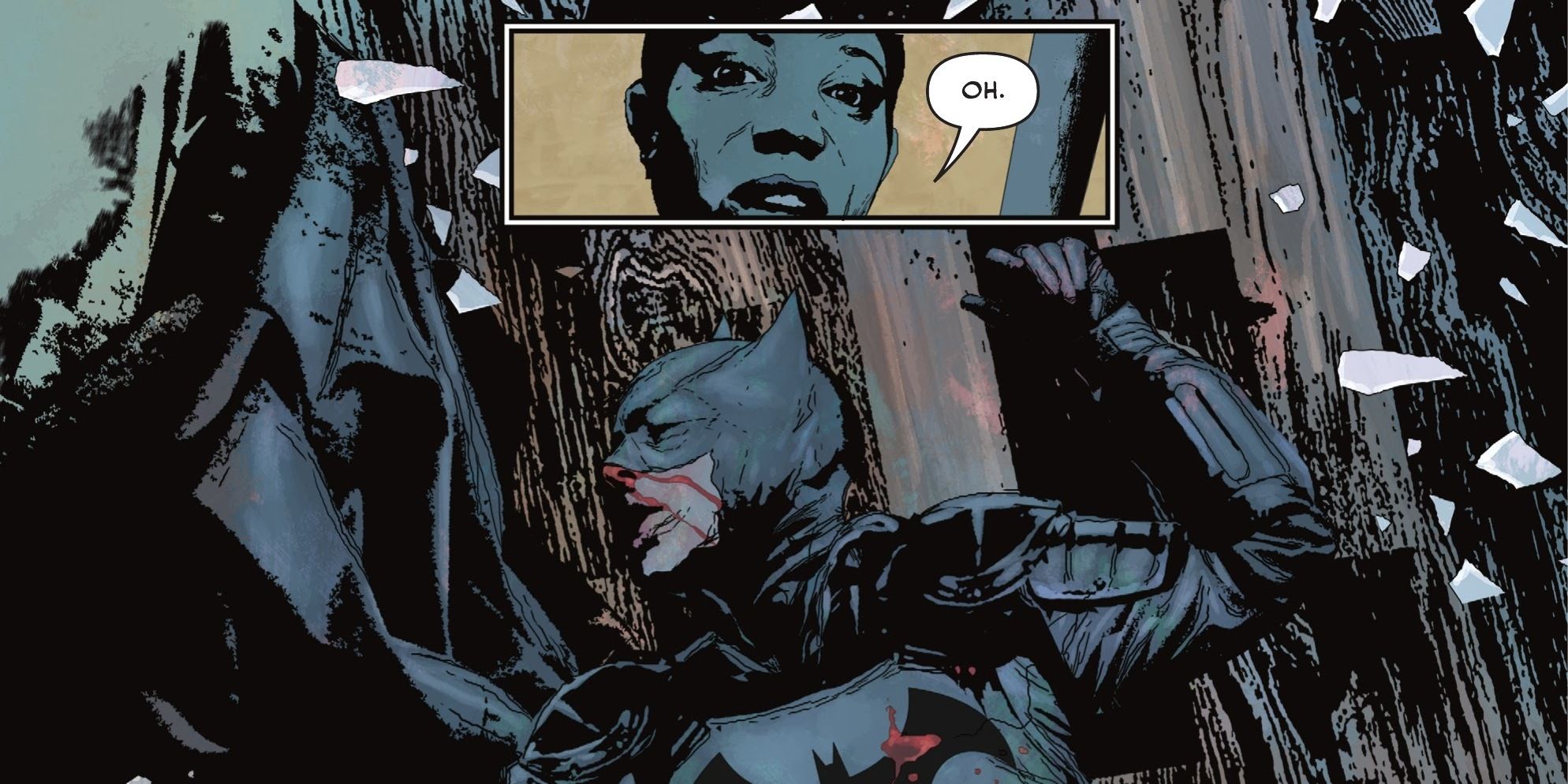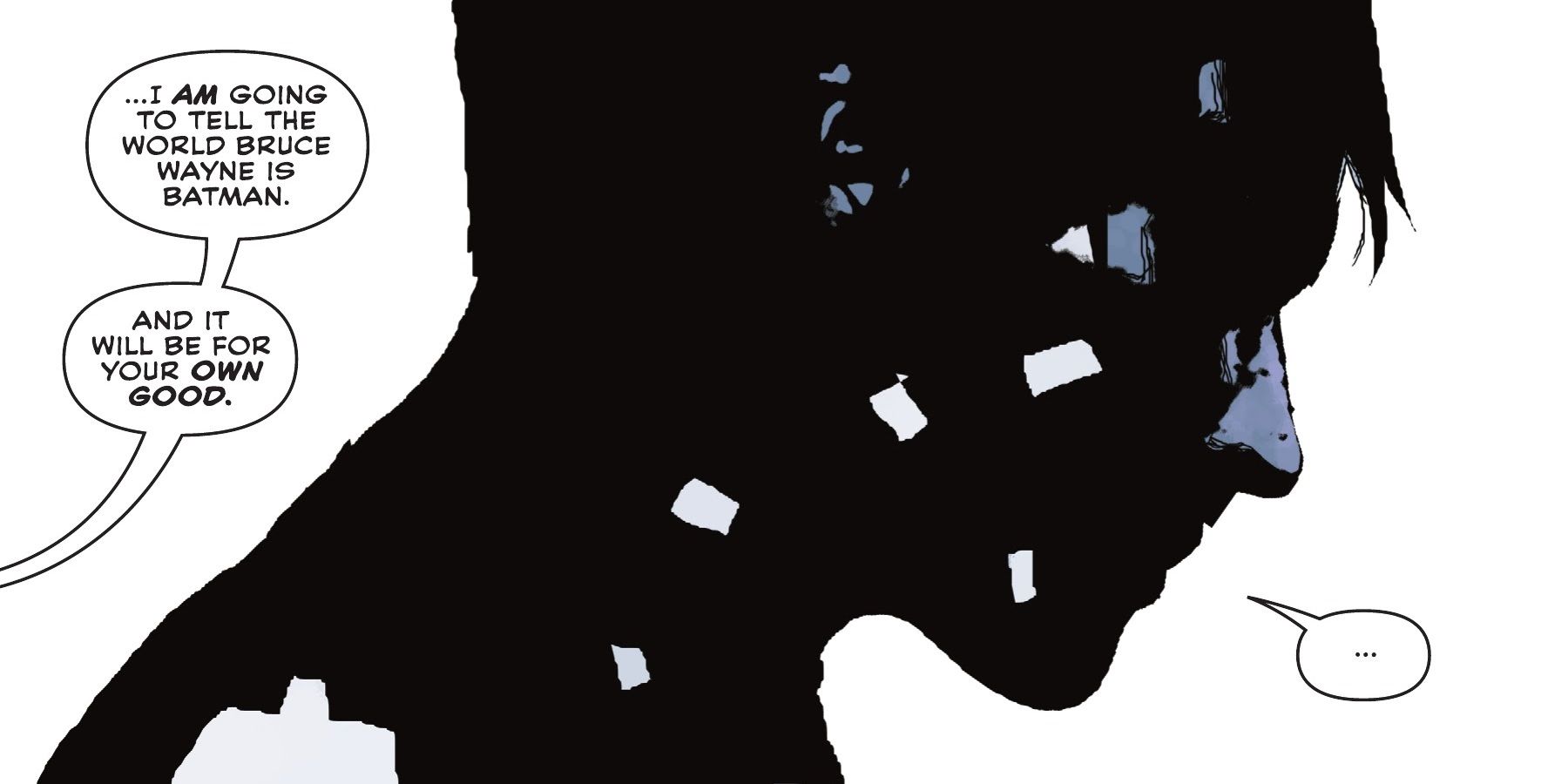WARNING: The following contains spoilers for Batman: The Imposter #1, available now from DC Comics.
Next year, director Matt Reeves' The Batman will swing into theaters with a dark tale set in the early days of the Dark Knight's war on crime. Even though Robert Pattinson's Batman interpretation of Batman isn't quite ready for big screens yet, the film's screenwriter, Mattson Tomlin, has offered another take on a younger Batman in his early years as Gotham's protector in the DC Black Label series Batman: The Imposter. The two projects are not directly tied together, but there is a shared DNA that suggests Batman: The Imposter by Mattson Tomlin, Andrea Sorrentino, and Jordie Bellaire might be able to offer a preview of where filmmakers took the story of The Batman.
The filmmakers have cited Batman: Year One by Frank Miller, David Mazzucchelli, and Richmond Lewis as a major inspiration, and this is something that can be seen in the footage available, especially the trailer released at DC FanDome. But while Year One sought to reveal the untold story of the Batman readers already knew, Reeves and Tomlin have the freedom to take this period in Bruce Wayne's life in a whole new direction to introduce their version of the character. The Imposter offers insight into Tomlin's priorities for Batman.
A major focus of this story is Bruce Wayne's mental well-being, something that while often present in other Batman stories, isn't often at the forefront textually. Tomlin goes so far as to introduce this story through Bruce's de facto personal therapist, Dr. Leslie Thompkins. She comes to learn that he is Batman, offering her a perspective of his psyche that very few are privileged enough to see. It is not unreasonable to assume that The Batman's approach to the character will be a more internal and psychological one in a similar way. This is something that previous movies have varied in their interest in. While Christopher Nolan's Batman trilogy was much more interested in the public side of Batman and what he meant to the world around him, Zack Snyder's Batman was grounded in an analysis of the character's psychology. Tomlin's story offers the hope that The Batman will also be built outwards from Bruce's mind and with a story more singularly focused on his character than Snyder's offerings.
Tomlin's Bruce is messy and clearly very unsure of his role in the world, even if he knows that being Batman works for now. Though he draws the line at executing criminals, he fights dirty and is driven by rage as much as any semblance of justice. This story is very explicit about the negative effect that being Batman has on Bruce Wayne, opening with him almost bleeding to death and showing Bruce arguing against any sense of reason for his need to continue. This very directly parallels moments in the trailer for The Batman where Bruce mentions he isn't worried about his own well-being as long as his work is done. It is very likely that this film will expand on the idea of being Batman as a self-destructive compulsion of Bruce Wayne.
Another idea that both stories seem to be touching on is the way that the people of Gotham respond to the introduction of Batman. Though he has seemingly been around slightly longer in The Imposter. As these stories exist in a modern context, it is likely this dynamic will have been updated since the time of Year One and there are hints of this in The Imposter. Bruce is forced to contend with messy political dynamics and we even find out Commissioner Gordon was fired for his involvement with Batman. Reeves' film similarly appears to feature a more grey Batman with Bruce Wayne equally being challenged about his father's history.
While Batman: The Imposter is an exciting story that stands strong on its own and introduces readers to a fresh vision of Gotham, it is also a unique opportunity to see Tomlin's ideas about Batman explored before they are brought to life on film.



